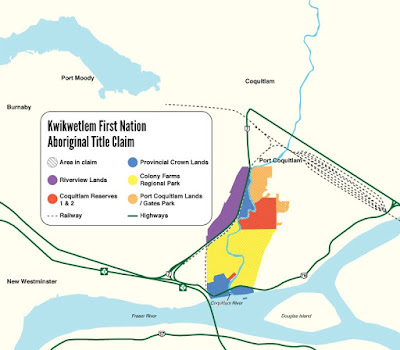City Council gave unanimous approval to the first readings of the 2017 budget bylaws this past Monday. The Tri-City News' coverage (most of which is not yet online) focused on our policies and usage of reserve funds. My focus, however, was on a more pressing issue. Here is the text of the speech I delivered.
 |
| Graphic: City of Coquitlam |
And I want
to declare now that I agree with him that the budget before us tonight is well
worth supporting. I am especially pleased that, for the eighth consecutive
year, the rate of increase has declined; this year it’s 2.17 per cent, the
lowest in 25 years.
While there
are parts of it with which I don’t agree, on the whole it strikes a commendable
balance between, on one hand, provision of needed services and amenities, and,
on the other, the sort of fiscal responsibility that our residents expect of council.
I am proud
to be part of a council that takes its duty in this latter area seriously. Ours
is a council that, unlike so many other political bodies, works hard to avoid
political gamesmanship, posturing and pandering; instead, it really does focus
on doing the best for the whole community – making decisions based on principle
and strong policy, rather than on prejudice and political pressure. And that’s
a very good thing.
I must point
out, however, that, while having sound budget policies and practices is
absolutely central to the work that we do here – and, moreover, that it is, in
fact, the foundation upon which is built the entire edifice of services that
the city provides – it actually isn’t the single, most pressing issue that
concerns me…. and confronts us all.
The issue
isn’t the tax rate; it isn’t the level of government services; it isn’t the
numbers of workers on city payroll; it isn’t parks, arenas, tennis courts,
artificial-turf fields or a museum; it isn’t laying more pipe and filling more
potholes; it isn’t water quality, air pollution, or safe streets, either.
Those are
all areas of importance. But, surely, the
most pressing issue is one that affects us, literally, where we live. It’s
housing affordability.
The measures
that council has taken over the past few years --- and will, one hopes, continue
to take in the years to come – will be a critical part of this council’s
legacy.
This council
has long stated that the primary responsibility for providing “deep
affordability” rests with the two senior levels of government. Nevertheless,
through adroit use of the city’s re-energized Housing Affordability Fund, the
city is set to do its part in this crucial area. Especially noteworthy is our
support of the Talitha Koum housing project.
To be clear,
though, housing affordability has always been an issue for lower-income
individuals and families. On the other hand, the now fully-emerged crisis that
is upon us now is a more contemporary phenomenon – the large gap between what
middle-income earners can afford and what the market demands they pay.
Consumers
have had to adjust their expectations. Many looking for a single-family home
have had to set their sights on a townhouses or condo. Those who might, in a
more affordable market, be looking to buy a condo now might, instead, look to
rent. And so it goes.
The single
most important thing the city can do to assist those in the market is to
facilitate the construction of new housing, whether it’s for sale or for rent.
That has
certainly been a main focus of mine over the five years I have spent on
council, and I am pleased to say that, in most cases, it is a focus that is
shared by the majority of council. Whether it’s approving townhouse
developments on Burke Mountain, Condo Towers in the city Centre, rental
projects in Burquitlam, or subdivision of lands in Maillardville, this is a
good thing.
Yes,
amelioration of adverse community impacts must always remain a concern, but I
believe our paramount responsibility in the face of an unprecedented crisis is
– and must continue to be -- to keep a clear focus on making good land-use
decisions that lead to the creation of more places that people, young or old,
poor or rich, single or married, can call home.


















